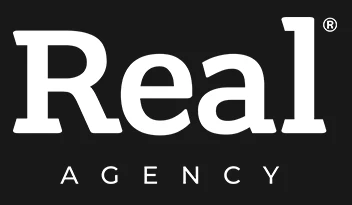How To Adapt Your SEO Strategy Post-Coronavirus
These are ‘unprecedented’ times. That’s the phrase that has been bandied about ever since we went into lockdown following the arrival and spread of coronavirus in the UK.
It’s no longer news, and the initial shockwave that has ripped through our economy and our way of life is over. We are now, as a nation, starting to return to work in an effort to rebuild what the virus has destroyed. Businesses everywhere are battling to stay afloat and individuals are doing whatever they can to save their jobs.
The world of eCommerce has not been insulated from this economic setback; in fact it’s fair to say that it’s been very much black or white in terms of how online businesses have performed during lockdown and beyond. Some have seen sales skyrocket as furloughed members of the public flock to buy DIY goods, video games and craft supplies as a way of keeping themselves entertained – others however, have been forced to close their stores and hibernate during lockdown, with some ceasing trade altogether.
The best-laid marketing plans of eCommerce business for 2020 have been scuppered and the online landscape has changed entirely. But is that to say that SEO cannot help on the road to recovery? Not at all.
In this blog, we’re going to look at the benefits of adapting your SEO strategy in this difficult time as well as providing actionable recommendations that you can implement on your website.
Explain Your Situation With A Dedicated COVID-19 Page
This is our first piece of advice and we think it’s crucial for any business that is still operating despite significant impact from coronavirus. Not only does a dedicated page like this capture relevant coronavirus traffic, it also helps to inform and reassure your customer base.
The page doesn’t have to be overly complicated – just let your customers know what you are doing to prevent the spread of the virus and instil that sense of trust in your brand. For example, if you’re still delivering products, you could explain the additional safety measures you have put in place. If you have a physical store, update your customers on opening hours and offer alternative ways to get your products such as via your website or click-and-collect.
Create Engaging Content About Emerging Topics
We believe that every eCommerce store should have a blog or news section as this allows you to create regular fresh content that can be distributed across your social media channels or through an email to your customers. Creating content about new and emerging topics can also boost your organic traffic numbers as customers search on Google for information about the latest trends – this could make all the difference between someone purchasing from you or a direct competitor.
The best place to look for this kind of information is Google Trends. The data on this platform is collected in real time and therefore gives it the edge over other data sources like Keyword Planner for example. Before you start writing anything, head over to Google Trends and think about your business and/or products – what keywords are essential to it? You can also try adding extensions like ‘at home’ or ‘indoor’ which are incredibly popular right now.
Once you’ve found a topic that is gaining traction, Google that term yourself to see what is ranking highly and the competition on that results page. You can then decide which type of content will be most effective – a blog post, an infographic or maybe even video.
Did you know only 1% of pages ranked in position 1 on Google search results are less than a year old?
Tweet this now
REMINDER – SEO is not purely about increasing rankings and growing organic traffic. That is true at a basic level, but ultimately it is about increasing the quality of organic traffic entering your site. Better quality means better conversion, better conversion means more sales/leads, more sales/leads means more revenue.
Improve Your Conversion Rate
One of the best and most effective areas you can invest your time and energy into is conversion. Even if your organic traffic has taken a hit during the coronavirus pandemic, it is still in your interest to enhance and optimise your conversion pathway.
The best way to do this from an SEO perspective is to head over to your Google Analytics and Google Search Console accounts. Take a look at the pages that have seen significant decline in visits and an increase in bounce rate. Are these pages still relevant? Are they conveying the right message at this time? Does the page still match up to the user’s intent?
Off the back of this, you can then make adjustments to content and keywords within those pages to try and revive them. This will in turn increase the relevancy of the page to your customers and hopefully start to bring that bounce rate down. Then you can move onto the next key element of the conversion pathway – friction.
Pain points are common across all sites as there is no such thing as the perfect purchasing process. You can always make changes and improvements to your checkout, you can optimise and streamline your login process, the list goes on. Try to view your site from a customer’s perspective and remove any obstacles that stand between them and that all important purchase.
Last but not least, it’s worth revisiting what makes your site stand out from the crowd. What do you offer that no one else does? This could be product or service specific, or as simple as offering free delivery on all orders. Whatever it is, now is the time to shout about it. You need to amplify your value proposition to make sure customers feel as though the decision between you and your competitor is an easy one – you want them to choose you!
Local SEO Is More Important Than Ever
With the current restrictions on travel and the majority of people preferring to stay in their local area right now, having a presence online to secure this captive audience has never been more important.
Local SEO tactics are the perfect way to appear in popular Google searches that include the phrases ‘near me’ and ‘open now’ – both of which have seen a marked rise in searches since the lockdown.
If you have a physical store that has been able to stay open, you can capitalise on this by updating and optimising your business listing to get found. Local SEO often flies under the radar in these types of scenarios, but now is a great time to steal a march on your competitors and secure local business from local people.
Summary
Hopefully some of these tips will be relevant and useful to you and your business over the coming months as life slowly begins to return to normal after this ‘unprecedented’ event.
Keep in mind that SEO is a slow process that requires consistency and it will take time to see any results. Only 1% of pages ranked in position 1 on Google search results are less than a year old. The trade off here is that it’s totally free so there really is no excuse not to consider it as a viable marketing strategy in 2020, even if your approach may need some adaptation.
If you need more specific guidance or have any questions on the benefits of SEO at this time, please contact us and we’ll be happy to help!


